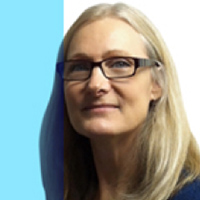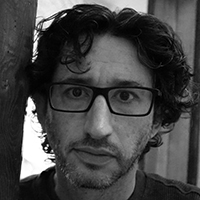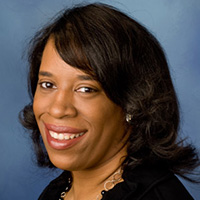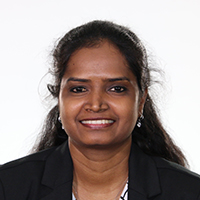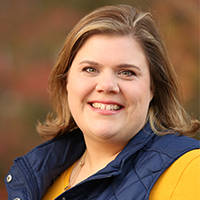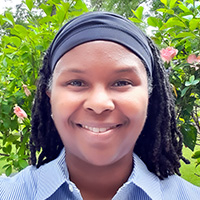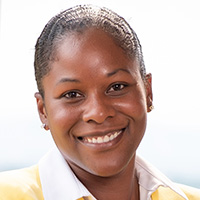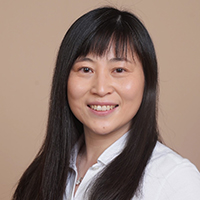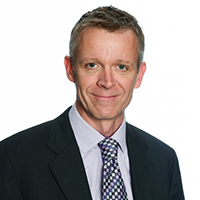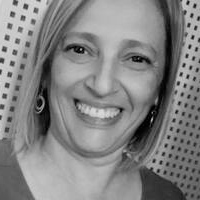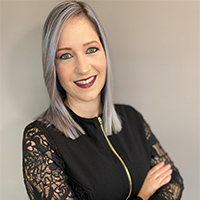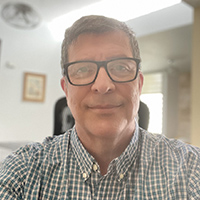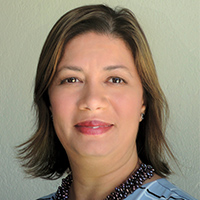The ASEE Engineering for One Planet Mini-Grant Program funds teams of educators pursuing new approaches to integrating sustainability into curricula. In July 2022, ASEE announced the 13 faculty teams that were awarded EOP mini-grants for Cohort I. View the 2023 Online Symposium which highlights Cohort I team projects.
EOP recognizes the importance of including people from historically marginalized and low-income communities who are disproportionately negatively affected by climate and environmental degradation as partners in creating change. As such, a key goal of the EOP-MGP is to engage and elevate diverse faculty and institutions. Five of the 13 grants in the inaugural cohort were awarded to Minority-Serving Institutions as follows: two Historically Black Colleges and Universities; and three Hispanic-Serving Institutions — one of which is also an Asian American and Native American Pacific Islander-Serving Institution.
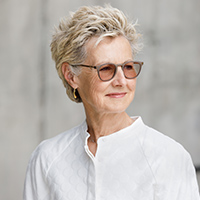 ArtCenter College of Design, Heidrun Mumper-Drumm (Team Lead) — View Team Poster
ArtCenter College of Design, Heidrun Mumper-Drumm (Team Lead) — View Team Poster
“Designers are challenged to face the realities of our current trajectory as a civilization. To prepare them we propose a new curriculum model that integrates sustainability course learning outcomes (S-CLOs) into all core studio courses in the Product Design Department. We are developing Modules for each S-CLO to deliver targeted learning as well as meaningful experiences. In addition, we have built a library of design heuristics that we are expanding to include justice, equity, diversity, and inclusion strategy exercises.”
Team Members
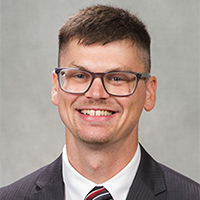 Bradley University, Tyler Smith — View Team Poster
Bradley University, Tyler Smith — View Team Poster
“My project has been the development of learning management system modules for engineering classes from the perspective of a business law professor. Topics include environmental literacy, responsible business and economy, and social responsibility. These topics provide a fundamental understanding the role law plays in helping or hindering the advancement of solutions to environmental issues.”
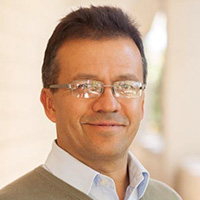 Colorado School of Mines, Juan Lucena
Colorado School of Mines, Juan Lucena
“Without social justice there is no sustainability. If people can’t meet their basic needs to live with dignity, they won’t prioritize the environment over daily survival. How can we achieve sustainability by prioritizing social justice? How can engineering facilitate connections between social justice and sustainability? These questions guide innovations in four engineering courses: Cornerstone (first-year design), Projects for People (junior-level design), Capstone (senior year design), and Advanced Engineering for Sustainable Community Development (graduate level).”
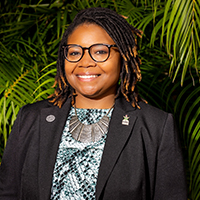 Kennesaw State University, Roneisha Worthy (Team Lead) — View Team Poster
Kennesaw State University, Roneisha Worthy (Team Lead) — View Team Poster
“The purpose of this project is to utilize the EOP Framework to help foster student ownership of education in sustainability. This is achieved through curricular changes that develop research skills and ability, develop communication and team working ability while creating alignment with engineering fields. In an introductory engineering course, students will approach their choice of profession, professional respect, major retention, and dominant images within their discipline, through a justice, equity, diversity, and inclusion lens. An evaluation of the change in attitudes towards sustainability education will be performed at the conclusion of the project.”
Team Members
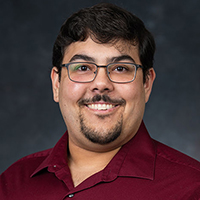 Penn State Behrend, Gamini Mendis — View Team Poster
Penn State Behrend, Gamini Mendis — View Team Poster
“The EOP program was used to help refine content taught in PES 320: Polymer Sustainability and PLET 464: Failure Analysis at Penn State Behrend. PES 320 currently has a strong focus on sustainability and life cycle assessment for plastics systems. Additional modules on justice and equity issues in the plastics industry were developed through this grant.”
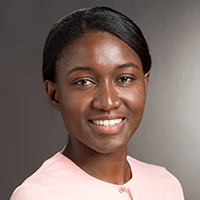 Rochester Institute of Technology, Yewande Abraham (Team Lead) — View Team Poster
Rochester Institute of Technology, Yewande Abraham (Team Lead) — View Team Poster
“Students in civil engineering need to be prepared to contribute positively to a more sustainable world. The Engineering for One Planet (EOP) Framework was developed to equip engineers with the skills, knowledge, and understanding to protect the planet and the life it sustains. Our project focuses on introducing students in the Civil Engineering Technology Program at Rochester Institute of Technology to sustainability concepts using the EOP framework while advancing justice, equity, diversity, and inclusion. The goal is to eventually integrate sustainability in several courses within the program to ensure that we graduate students that are well-grounded and prepared to be sustainability change agents in their chosen careers.”
Team Member
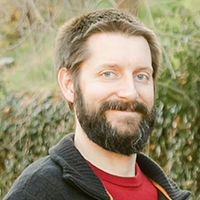 San Jose State University, David Wagner — View Team Poster
San Jose State University, David Wagner — View Team Poster
“Our project focuses on incorporating concepts of sustainability in senior chemical engineering capstone experiences. Through fieldtrips, lectures, formative assessments, and senior projects, students will learn about the three pillars of sustainability – environment, society, and economics. The relationship of these fundamentals will be explored individually and as teams over two semesters with industry applications and advisors. Anticipated outcomes of this work include students learning a measured amount about sustainability and leveraging improved instruction methods for the betterment of our department and college.”
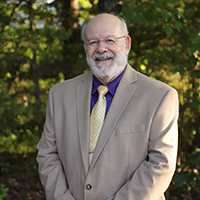 Tennessee Technology University, Pedro Arce (Team Lead) — View Team Poster
Tennessee Technology University, Pedro Arce (Team Lead) — View Team Poster
“This investigators on this project propose to magnify the focus on Sustainability in engineering programming at TN Tech by systematically incorporating the EOP model into core components of the design process of potentially four chemical engineering courses. Using the RFM, student-team-developed prototypes of innovative technology will address societal challenges as required outcomes. The integration of the EOP model as a structured approach to sustainable design will help guide student-teams developing such prototypes to address societal challenges as part of their formation as a holistically-trained professional. In particular, intentional activities will ask student-teams to leverage the EOP model as a way of integrating approaches to systems thinking, knowledge and understanding, skills, experiences, and behavior as part of the design processes within Foundry-guided learning experiences.”
Team Member
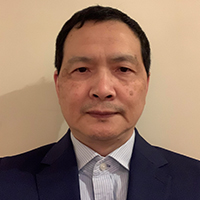 University of the District of Columbia, Li Chen — View Team Poster
University of the District of Columbia, Li Chen — View Team Poster
“This is a totally new design of a full course for undergraduate students at UDC. We [e]specially focus on students who may not have strong math background. With this support of EOP Mini-Grant, we have already completed the design of the first version of the syllabus.”
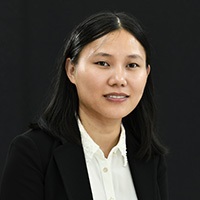 University of Maryland Eastern Shore, Lanju Mei — View Team Poster
University of Maryland Eastern Shore, Lanju Mei — View Team Poster
“Two courses in engineering program at University of Maryland Eastern Shore are selected to incorporate the topics of sustainable engineering. Junior and senior students taking these courses will be exposed to the concept and importance of engineering sustainability and learn to apply energy effectiveness and whole system mapping through discussion, video, exercise, lecture, etc.”
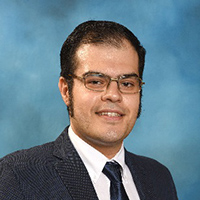 University of Michigan-Dearborn, Alireza Mohammadi (Team Lead) — View Team Poster
University of Michigan-Dearborn, Alireza Mohammadi (Team Lead) — View Team Poster
“We are integrating sustainability-centered curriculum into the robotics/mechatronics courses taught at the University of Michigan-Dearborn. The curriculum modules are centered on mini-projects that are in line with the project-based learning (PBL) framework. The overarching theme of these mini-projects focuses on the two key concepts of “robotics for sustainability” and “sustainability for robotics”. These mini-projects will also be completely in line with the leadership vision about the curricular innovations at the University of Michigan-Dearborn.”
Team Member
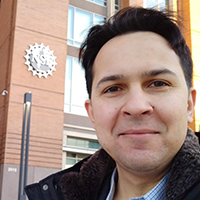
Samir Rawashdeh
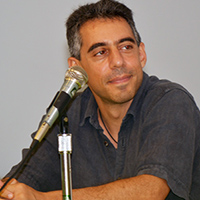 University of Puerto Rico, Mayagüez, Chris Papadopoulos (Team Lead) — View Team Poster
University of Puerto Rico, Mayagüez, Chris Papadopoulos (Team Lead) — View Team Poster
“The project is undertaking the creation of both a Minor and Major (BS) in Sustainability Engineering. The Minor is expected to be open by Fall 2023, and the Major by Fall 2025. The project involves creation of new courses and curricula; stakeholder building; fundraising; and research on sustainability mindsets. Recruitment of women, workforce development, and the development of a Community of Practice are all featured elements.”
Team Members
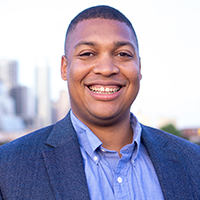 University of Texas at Arlington, Erick Jones, Jr. — View Team Poster
University of Texas at Arlington, Erick Jones, Jr. — View Team Poster
“The University of Texas at Arlington has created numerous programs to integrate sustainability into the curriculum. However, these programs have only reached a small subset of the faculty population and as a result a small subset of the courses. This project aims to implement the EOP framework into a core engineering class that has little to with sustainability as part of a course project. The hope is that if the EOP curriculum can be integrated into a course like Engineering Probability via a course project than it can be integrated into any engineering course.”

